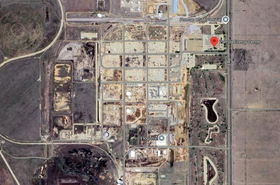US tech giant Google has reportedly spent more than $100 million on carbon removals in the past year, three times more than it originally planned.
The company acquired carbon removal credits through independent purchases and deals contracted through the buying consortium Frontier.
Google's carbon credits and removals lead Randy Spock indicated there is still more to come from the company, writing on Linkedin: “While we’re encouraged by this initial progress, we’re keenly aware that this is just the beginning. We’re excited to keep expanding our support for carbon removal in 2025 - and we’ll remain open to novel ways of achieving high-scale, high-certainty impact on the atmosphere.”
Google claims to have purchased 790,912 tons of carbon removals to-date, supporting projects across Asia, Africa, Europe, the US, and the Americas.
The search giant has acquired carbon removals from various sources over the past 12 months.
Deals included purchasing 200,000 tons of carbon removal credits from Terradot, an enhanced rock weathering (ERW) carbon removal start-up, in December. This was Google's first deal with an ERW firm, and the credits are expected to be delivered in the early 2030s.
Additionally, in September, Google signed a $10 million deal with direct air capture firm Holocene for 100,000 tons of carbon credits, which will be delivered in the early 2030s. At $100 per ton, the deal is the lowest price on record for DAC, which the Department of Energy previously said was needed to make carbon capture mainstream.
In May, Google, alongside Meta, Microsoft, and Salesforce, announced the formation of the Symbiosis Coalition, an advance market commitment for nature-based removal credits in the voluntary carbon market. As part of the coalition, the companies have collectively committed to contract up to 20 million tons in nature-based carbon removal credits by 2030.
In March, Google announced, through Frontier, the purchase of $35 million in carbon removal credits. The company did not provide specific details about the technology to which the credits are tied.
Finally, last month, Google signed two biochar carbon removal deals with Varaha and Charm. The agreement with Varaha was Google's first in India and will see the company purchase 100,000 tons of carbon removal credits.
The Charm agreement will see Google purchase 100,000 tons of removal credits, delivered through 2030, tied to projects in the US.







